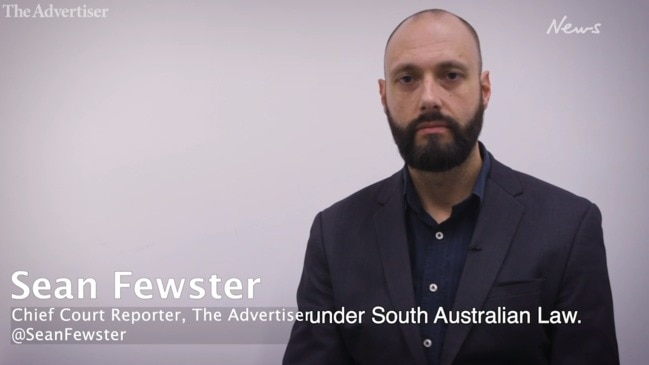State Government moves to abolish identity protection for alleged sex offenders, maintains protections for victims
Alleged sex predators will no longer receive special treatment under the law, while victims will be able to talk about their cases freely, under new laws expected to be in force by Christmas.

Crime in Focus
Don't miss out on the headlines from Crime in Focus. Followed categories will be added to My News.
- OUR CAMPAIGN: End ID suppression for alleged sex offenders
- CHANGE: State Government flags end to offender anonymity
- How to get the most out of your Advertiser digital subscription
Alleged rapists, paedophiles and sex predators will lose their longstanding, automatic and archaic right to anonymity by year’s end under laws going before Parliament today.
The reform will also empower adult alleged victims of sex crimes to speak publicly after an offender’s arrest while still guaranteeing their anonymity, protection and privacy.
After two decades of campaigning by The Advertiser, the State Government is finally rewriting the Evidence Act (1929) and ending special treatment for alleged sex criminals.
The change comes 18 months after this newspaper’s inaugural “Your Right To Know” week directly challenged the Marshall Government to abolish the draconian legislation.
On Wednesday, Attorney-General Vickie Chapman said her amendment Bill would finally bring SA’s secrecy laws into line with other states.


“We believe that, in the vast majority of cases, the public has the right to know the identity of someone who has been charged with an offence of this nature,” she said.
“No other offence allows for an automatic suppression order, and our reforms seek to address that imbalance.
“This will not impact measures to protect victims, though adult alleged victims will now be able to speak publicly about the charges if they wish to do so.”
Under the existing law – Section 71A of the Act – the identities of alleged sex offenders may not be publicly revealed until “the relevant date”.
That is defined, in the legislation, as the date on which an accused person enters a plea or is ordered to stand trial in the District or Supreme Court.
However, if their matter is heard in the Magistrates Court, the “relevant date” is the day on which they are convicted – meaning their trial is effectively held in secret.
Individuals who breach the law face a $10,000 fine while media outlets can be fined up to $120,000.
Journalists, victims advocacy groups and social commentators have long argued the laws create a “two-tier system”, affording alleged sex criminals special treatment in court.
A 2011 review of the law, by retired Justice Brian Martin, recommended it be scrapped – however, the then-Labor Government refused to do so.
Instead, it gave journalists the right to seek a “public interest exemption” from the court allowing a story to be published.
Since its introduction, that right has resulted in just one successful application.


Following the Marshall Government’s 2018 election victory, The Advertiser’s “Your Right To Know” campaign challenged it to act on Mr Martin’s recommendation.
In June, Ms Chapman said she would draft a Bill to make the change – at the time, the State Opposition gave its in-principle support, pending scrutiny of the “exact wording”.
The draft Bill deletes the “relevant date” concept, replacing it with the “relevant time”, being when an accused’s “first appearance in a court in relation to the charge is concluded”.
It makes no changes whatsoever to mandatory suppression of the identities of victims, which are governed by a different piece of legislation.
Should identification of an alleged offender identify their alleged victim, through marriage or family ties, then their name will still be suppressed to protect that victim.
On Wednesday, Ms Chapman said the Bill would ensure all offenders – regardless of the accusations against them – were treated equally and without special considerations.
“Currently only SA, Queensland and the NT prohibit identifying an accused charged with serious offences until they are committed to trial to a superior court,” she said.
“Where the court deems it necessary, a suppression can still be imposed – but this will be a consistent process for all offences.”
She hoped the Bill would pass into law before the end of the Parliamentary sitting year.

Originally published as State Government moves to abolish identity protection for alleged sex offenders, maintains protections for victims



